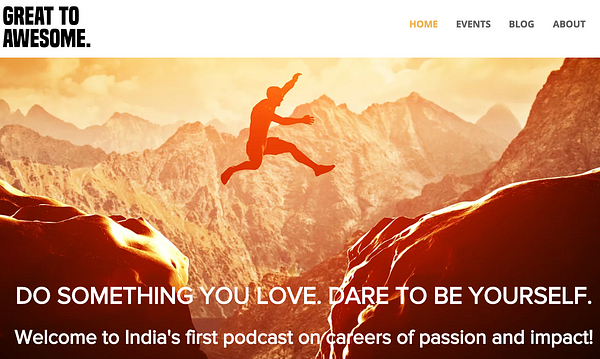I love to read. So when my team asked for book recommendations in a recent Town Hall, I hopped on the opportunity to reflect a little on the books I’ve found helpful on my career journey these last 15+ years. These are all nonfiction favorites — narrowing my fiction favorites is simply too big a task — and all made a strong impression at the times I read them, even if they may not all stand the test of time equally. While these aren’t the most original or arcane selections, they’re ones you’ll almost certainly be glad you checked out.
Happy reading!
Books about the world:
- Guns, Germs and Steel (Jared Diamond) – One of the very first books I read that sparked my interest in why certain places were different than others. I am pretty sure I read it while backpacking in Vietnam. One idea that stuck with me was about the conditions that enable a production surplus (i.e., enough food that we can save it for the future) and how that served as the foundation for modern civilization (e.g., science, philosophy, commerce). The flipside, of course, is how horrifying it is to learn the ways those tools were used against the defenseless as imperial ambitions grew…
- Cosmos (Carl Sagan) – This is a Carl Sagan classic, and if you don’t know about the Big Bang or time dilation or how big the universe is and you want to have your mind blown, read this book. While it hasn’t directly shaped my career, it’s definitely shaped my worldview (er, universe view) and I like to think there’s an alternate dimension in which I’m an astrophysicist.
- Sapiens (Yuval Noah Harari) – This guy writes his book as if he’s sitting on a nearby planet, thoroughly untroubled by the contemporary concerns of humanity and more interested to understand our trajectory from a cosmic or millennial perspective. The way he grounds the arc of human experience as an extended trajectory of conquest and stories, always within the frame of Earth’s lifetime, makes everything feel small but in a powerful, mind-expanding way.
- India After Gandhi (Ramachandra Guha) and The State of Africa (Martin Meredith) – I read these books about a decade apart (IAG around 2009, SoA only this year) but they were indispensable books for me as I seek to better understand the context and history of these amazing markets I work in. The books are similar: massive tomes that take on the task of telling the myriad stories of hugely complex and diverse places from the time of independence movements (roughly mid-20th century) through the early 2000s. Obviously, any book like these is totally incomplete and I’m sure disputable on many fronts. But for me, they’ve been useful tools to help me structure my understanding of where India and Africa have been and search for clues about how best to navigate the present and look ahead.
Books about work and teams:
- Execution (Larry Bossidy) – I read this book a long time ago, and I fear it’s better suited to a simpler, pre-digital age — in certain parts they recommend writing hand-written letters! It contains a lot of wisdom and best practices about how to create systems for people, strategy, and operations to get stuff done and ensure maximum impact, productivity and accountability. While some of the tools work better if you’re leading big teams, there are ideas anyone can take advantage of, even if you’re just the boss of yourself. Another book recommendation on the execution theme is The 4 Disciplines of Execution. This one pushes us to focus on our “wildly important goals” and keep track of progress via “lead” measures on a scoreboard, all while (reassuringly) acknowledging the whirlwind of day-to-day stuff that can suck up 80% of our week.
- The Four Hour Workweek (Tim Ferris) – The Tim Ferriss classic… It seems cliche to recommend this but what I really liked and what led to some useful epiphanies is the reminder that a good business makes money, and some of the best businesses make money quite simply — without crazy new ideas, lots of VC money, and impossible odds. It’s kind of an antidote to the voracious world-dominating viewpoints of most VC / entrepreneur books (e.g., Zero to One!) and re-grounds business in a simple profit equation: Put in as little resources as possible to make as much money as possible, and focus on actual free cash flows so you can live a really cool life.
- High Output Management (Andrew Grove) – Another classic, written by the longtime Intel CEO and Silicon Valley legend Andy Grove. Maybe a little dated, but still largely applicable and covers a lot of amazing basics about building and growing teams, running complex organizations, creating leverage points, and making decisions.
- The Culture Code (Daniel Coyle) – This one rocked my world, and was a topic of a previous blog post. In essence, Daniel Coyle asks, “Why some teams are more than the sum of their parts, and some are less?” This gave me a way for thinking about teams of all stripes (athletics, business, etc.) and what makes them great, without just falling back on some flaccid notion of “shared values.” There are a number of other culture-oriented books I’ve also enjoyed (including Primed to Perform, Delivering Happiness, and Setting the Table, to name just a few), but this one is special.
- New Power (Jeremy Heimans) – Written by the CEO of Purpose, I recently found this book a very insightful and useful framework for thinking about the role of social media and movements and virality in building great businesses. I fear I am still an “Old Power” kind of guy (maybe it’s my age?), but there’s a lot in this New Power method and philosophy I’d genuinely like to learn and leverage to unlock professional potential through Shortlist.
Books about development:
- The Mystery of Capital (Hernando De Soto) – The book that drove me to become (briefly) a real estate lawyer… This is one of the most insightful development books I’ve ever read, describing the complicated interplay of law, record-keeping, and politics that turns things we own into “capital,” i.e., things we can easily turn into money through mortgage, collateralization, etc. The idea of widespread “dead capital” in emerging markets was fascinating to me, and I went into real estate law so I could learn in detail how a web of property rights and contracts could actually turn this dead capital into living, breathing capital ready to be deployed toward investment and growth.
- The Elusive Quest for Growth (William Easterly) – The William Easterly classic (along with White Man’s Burden), which I remember as one big, brilliant takedown of traditional development economics and the development-industrial complex that rests on it. Easterly became a persistent counterpoint to Jeffrey Sachs and his “if we only had enough money, we could solve all the problems!” idealism. I like that this book eschews big development aid in favor of letting a thousand flowers bloom. This was an initial spark that got me more excited about tools like microfinance and entrepreneurship to solve big problems rather than massive institutions like the World Bank.
Books about startups:
- The Hard Thing about Hard Things (Ben Horowitz) – A more recent hit, written by the iconic founder of venture behemoth Andreessen Horowitz. I found the first half a bit self-congratulatory, but the second half was full of interesting examples and insights about the challenges and celebrations along the way of building startups.
- Traction (Gabriel Weinberg) and Lean Startup (Eric Ries) – These are good books to refer back to every once in awhile; they’re kind of like two sides of one coin. Lean Startup focuses on the “rules” of building product in a rapid prototyping/iteration model (“build-measure-learn” cycles), and Traction focuses on distribution and goes through a bunch of marketing and sales tactics to get your product out there.
- Zero to One (Peter Thiel) – This is the Peter Thiel meditation on what makes a high-growth, dominant startup. There’s a lot here that I question or don’t agree with (e.g., the focus on building a monopoly as a positive thing, the need to dominate markets, etc.). But, it’s a really useful framework to try to make sense of the modern tech landscape and the difference between a normal business and a venture-backable startup.
I hope you were able to pick up one or two ideas for your next read. I’d love to hear your thoughts and your own book recommendations, so please leave comments or write to me at paul@shortlist.net.





































